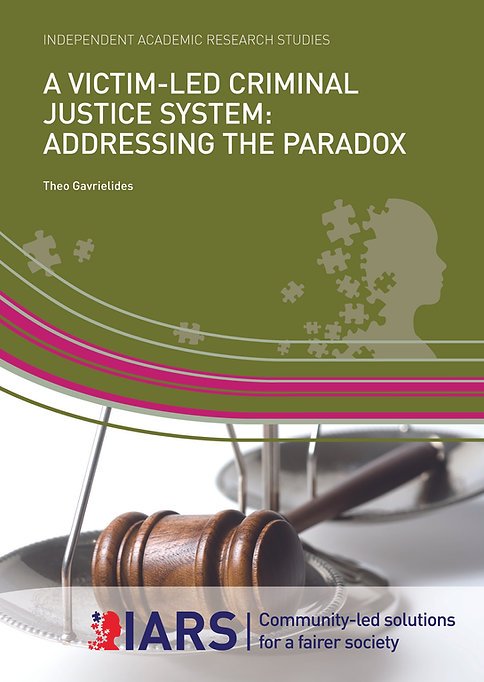Sample Academic Articles and Chapters
-

The Fluidity of Victimhood
“There is a higher court than courts of justice and that is the court of conscience. It supersedes all other courts.” - Mahatma Gandhi
“We must take sides. Neutrality helps the oppressor, never the victim. Silence encourages the tormentor, never the tormented. - Elie Wiesel
In the dawning of an age in which victim rights and victim-centered justice responses are gaining momentum, inspiring nation-wide debate, and giving birth to new legislation and action, we must, more than ever, consider taking sides.
Indeed, if we are to truly improve the “justness” of our justice responses, we must seek neither neutrality nor partiality as our guiding motto, but take the side of every individual who comes within our custody, our care, our Circle, and our conflict community…
-

The Fight Room
(with Dominic Barter)
In 1854, Dr. John Snow, an early epidemiological pioneer, interrupted a deadly epidemic of cholera by tracing the source of the “poison” in sewage-tainted water to a specific London water pump. For two decades prior to this, Snow had made unsuccessful attempts to shift the prevailing belief that cholera was caused by “miasma in the air.” The cost of societal failure to embrace a new understanding of the origins and spread of disease was over 10,000 lives.
Today we continue to struggle with other epidemics, such as the widespread persistence of interpersonal violence, structural violence, and violence based in inter-racial and inter-ethnic tensions. Not only is the cost great in terms of lost lives and personal trauma, but considerable resources are also spent on attempts to subdue, redirect, and control the violence.
Yet, as in nineteenth-century London, we may continue to make little progress in treating this disease until we are willing to honestly re-examine our deeply held beliefs about its origins…
-

Challenging Power Dynamics in Restorative Justice
(with Mikhail Lyubansky)
Power dynamics play an important and often unacknowledged role in restorative processes. At the societal level, variables such as race, gender, age, sexual orientation, and socioeconomic status interact to create explicit and implicit biases towards members of some groups. At the restorative system level, unquestioned paradigms around the roles of victims, offenders, gatekeepers, and facilitators may contribute to inequitable access and procedures. Finally, at the restorative process level, facilitation and practices that limit participation and ownership may contribute to participant disempowerment.
When power dynamics within these three levels interact and influence each other, they result in less restorative processes and outcomes for all. The chapter concludes with recommended strategies to counteract these power dynamics and increase the field’s alignment with its values of power-sharing, ownership, choice, and voice.